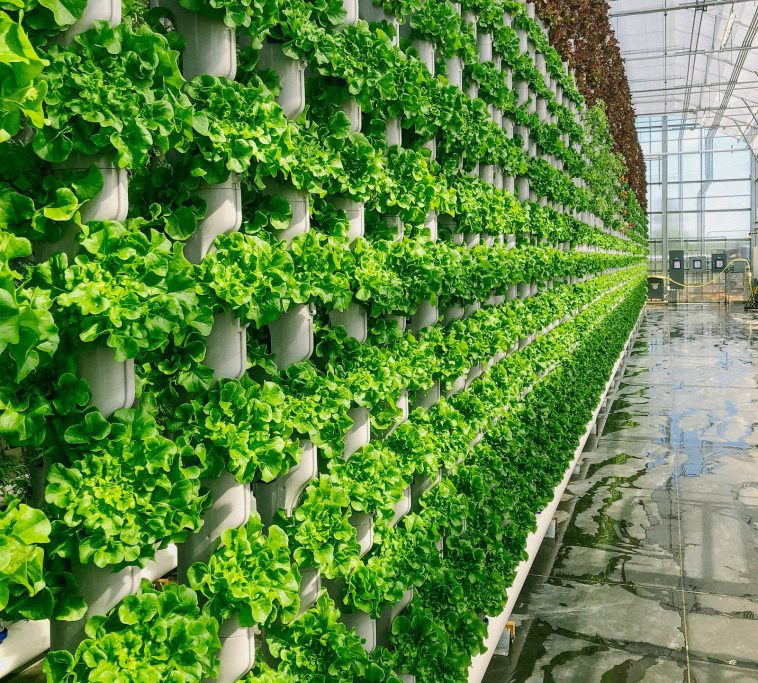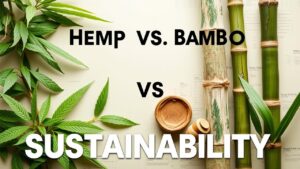Urban agriculture is more than a trend; it’s a fundamental shift towards sustainable urban development. Through innovative farming practices like vertical farming, rooftop gardens, and hydroponics, urban agriculture offers unparalleled benefits for environmental sustainability. This article will explore how urban agriculture could contribute to global sustainability, reduce the environmental footprint, and foster community health and social equity.

1. Urban Agriculture: A Green Revolution
- Definition of Urban Agriculture: Understanding the multifaceted nature of growing food within cities.
- Examples of Urban Agriculture: From community gardens to rooftop farming, urban agriculture includes a wide variety of practices.
- Innovative Technologies: The role of cutting-edge techniques in making urban farming more sustainable.

2. Environmental Benefits of Urban Agriculture
Urban farming has diverse and profound environmental impacts:
- Reduction of Greenhouse Gas Emissions: Urban agriculture could reduce emissions by localizing food production.
- Mitigation of Urban Heat Island Effect: Green infrastructure such as rooftop gardens helps in the mitigation of urban heat.
- Water Conservation: Practices like hydroponics use less water than traditional farming methods.
- Soil Health and Land Use: Turning vacant lots into fertile land supports soil health and sustainable land use.
3. Supporting Sustainable Food Systems
Urban agriculture is at the heart of sustainable food systems:
- Local Food Production: Promoting access to fresh fruits and vegetables for urban residents.
- Sustainable Agriculture Practices: Emphasizing methods that align with global sustainability and sustainable development goals.
- Food Security: Ensuring stable access to healthy food, enhancing community-supported agriculture.
4. Social Benefits and Community Health
Alongside environmental benefits, urban agriculture fosters social cohesion and community health:
- Community Gardens and Social Equity: Creating spaces for social interaction, improving access to healthy food for all.
- Environmental Justice: Addressing inequalities in food access and environmental benefits within cities.
- Participating in Urban Farming: Engaging urban residents in maintaining an urban farm builds community health and cohesion.
5. Urban Agriculture and Sustainable Cities
Urban agriculture could be the key to achieving sustainable urbanization:
- Mitigation of Environmental Impacts: Reducing urban heat island effects, greenhouse gas emissions, and enhancing urban ecosystem health.
- Urban and Regional Planning: Integrating urban agriculture sites into urban and regional development plans.
- Potential of Urban Agriculture: The full benefits and importance of urban agriculture in creating sustainable future cities.
6. Challenges and Future Opportunities
- Challenges: Includes regulatory barriers, land access, and the need for ongoing community engagement.
- Opportunities: Expanding urban farming techniques, fostering social benefits, and leveraging urban agriculture for sustainable development goals.
Conclusion
Urban agriculture is no longer just an alternative method of food production; it’s a vital part of the sustainability paradigm. From mitigating greenhouse gas emissions to contributing to social equity, the potential of urban agriculture goes beyond just growing food.
The implications of urban agriculture for sustainable cities are immense. As urban agriculture becomes more integrated into urban spaces, it indicates that urban farming is not just about the ability to increase social connections and access to fresh food, but a holistic approach to building a sustainable future.
The combination of environmental sustainability, social cohesion, and innovative technologies makes urban agriculture a pivotal movement, transforming urban areas into thriving, sustainable urban ecosystems.




